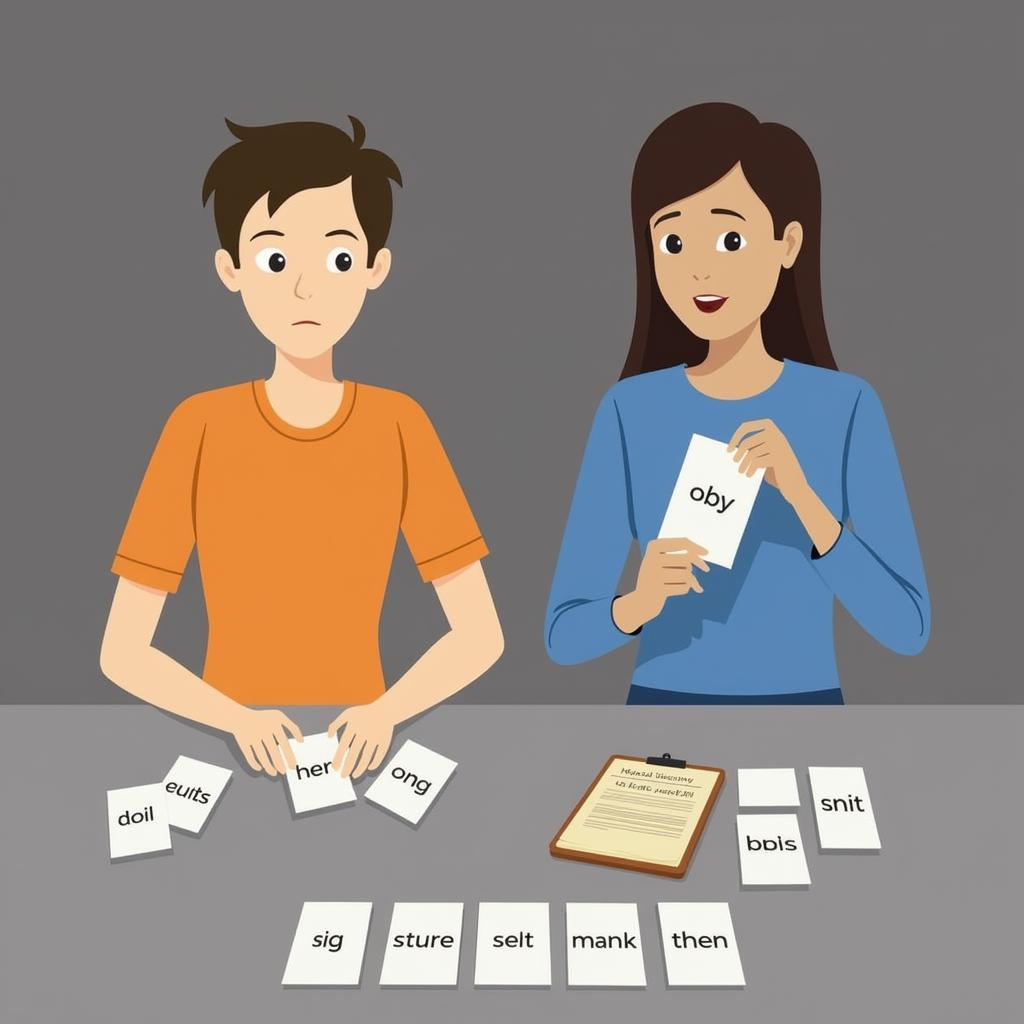Giỏ hàng hiện tại chưa có sản phẩm nào!

Talking About Famous People in IELTS Speaking Part 3: A Comprehensive Guide
The IELTS Speaking test can be nerve-wracking, especially when you reach Part 3, where you’re expected to discuss more abstract topics. One common theme is “famous people,” which can be tricky if you’re caught off guard. This guide will equip you with the vocabulary, strategies, and confidence to ace this section.
Understanding the Challenge
The examiner isn’t interested in testing your celebrity gossip knowledge. They want to assess your ability to:
- Express opinions: Do you have insightful things to say about fame, success, and the impact of famous people?
- Use a range of vocabulary: Can you discuss this topic with sophistication and avoid repetition?
- Structure your responses: Can you present your ideas logically and coherently?
Key Vocabulary for Discussing Famous People
- Role model: Someone whose behavior, example, or success is or can be emulated by others, especially by younger people.
- Public figure: A person who is well known to the public.
- Celebrity culture: The general obsession with the lives of famous people.
- Influence/impact: The effect that famous people have on society.
- Positive/negative role model: Describes whether a famous person’s influence is beneficial or harmful.
- Media attention/scrutiny: The intense focus that the media places on celebrities.
- Privacy: The right of famous people to have their personal lives kept out of the public eye.
- Philanthropy: Charitable work done by famous people.
Common Questions and Strategies
Here are some typical IELTS Speaking Part 3 questions related to famous people and how to approach them:
1. What makes someone famous?
- Avoid simplistic answers: Don’t just say “talent” or “beauty.”
- Provide nuanced reasons: Consider factors like hard work, timing, luck, media exposure, and having a unique selling point.
Example: “Well, it’s definitely a combination of things. Natural talent plays a role, of course, but I think hard work and dedication are crucial. Also, being in the right place at the right time can be a huge factor in someone’s rise to fame.”
2. Do you think celebrities have a responsibility to be good role models?
- Acknowledge both sides: There are valid arguments for and against this idea.
- State your opinion clearly: But be sure to support it with reasons.
Example: “That’s a tough question. On the one hand, celebrities are just people, and we can’t expect them to be perfect. But on the other hand, they have a huge platform and influence, especially over young people. So, it’s important for them to be mindful of their actions and the messages they’re sending.”
3. How has the way people become famous changed over time?
- Think about historical shifts: Consider the impact of the internet, social media, and reality TV.
- Contrast traditional paths to fame with modern ones: For example, compare actors who became famous through stage performances to those who gained recognition through social media platforms.
Example: “In the past, fame was often tied to specific professions, like acting or singing. But nowadays, with social media, anyone with a smartphone and a good internet connection has the potential to become famous overnight.”
 The Impact of Social Media on Fame
The Impact of Social Media on Fame
4. What are the advantages and disadvantages of being famous?
- Go beyond the obvious: Don’t just mention wealth and recognition.
- Consider the psychological and social implications of fame: Think about the pressure, lack of privacy, and potential for isolation.
Example: “Well, obviously being famous comes with perks like wealth and recognition. But I imagine the constant scrutiny from the media and the lack of privacy could be incredibly difficult. Plus, it must be tough to maintain genuine relationships when everyone wants something from you.”
5. Do you think it’s important for people to have role models?
- Consider the different purposes role models serve: They can provide inspiration, motivation, and guidance.
- Think about the potential drawbacks: Over-idealization or unhealthy comparisons.
Example: “I think role models can be incredibly valuable, especially for young people who are still figuring out who they are. Having someone to look up to can inspire them to work hard and achieve their goals. But it’s important to remember that no one is perfect, and we shouldn’t put our role models on pedestals.”
Tips for Success
- Practice, Practice, Practice: The more you practice speaking about famous people, the more confident and fluent you’ll become.
- Record yourself: Listen back to identify areas for improvement in your pronunciation, vocabulary, and coherence.
- Expand your vocabulary: Make a conscious effort to learn new words and phrases related to this topic.
- Stay informed: Keep up with current events and popular culture to have relevant examples to draw upon.
 Preparing for the IELTS Speaking Test
Preparing for the IELTS Speaking Test
Conclusion
Discussing famous people in the IELTS Speaking test doesn’t require you to be a walking encyclopedia of celebrity trivia. The key is to demonstrate your ability to think critically, express your opinions clearly, and use a wide range of vocabulary. By following the strategies outlined in this guide and practicing regularly, you’ll be well-prepared to confidently tackle any questions that come your way.
FAQs about Discussing Famous People in IELTS Speaking Part 3
1. What if I can’t think of any famous people to talk about?
Don’t panic! You can always draw on examples from your own country or culture. You can also talk about fictional characters or historical figures. The important thing is to demonstrate your ability to analyze and discuss the concept of fame.
2. Is it okay to express negative opinions about famous people?
Yes, it’s perfectly acceptable to express critical viewpoints as long as you do so respectfully and constructively. The examiner wants to see that you can think for yourself and articulate your ideas effectively.
3. Should I memorize answers beforehand?
It’s not advisable to memorize entire responses as this can sound unnatural and make it difficult to adapt to unexpected questions. However, it’s helpful to prepare some key vocabulary and ideas in advance.
4. What if I make a mistake?
Don’t worry about making minor errors! Everyone makes mistakes, and the examiner understands this. The most important thing is to keep speaking and try your best to communicate your ideas effectively.
Need Further Assistance?
We understand that preparing for the IELTS Speaking test can be challenging, and we’re here to help you every step of the way!
For personalized guidance and support, contact us:
- Phone: 0372960696
- Email: tuyet.sixt@gmail.com
- Address: 260 Cầu Giấy, Hà Nội
Our dedicated team of experts is available 24/7 to answer your questions, provide valuable insights, and help you achieve your desired IELTS score. Don’t hesitate to reach out!